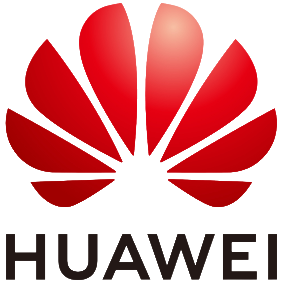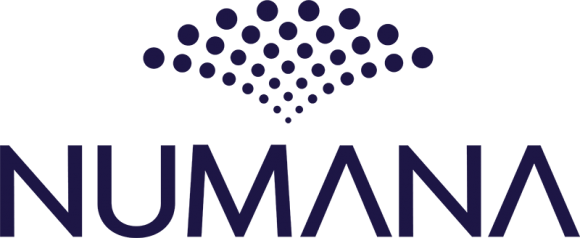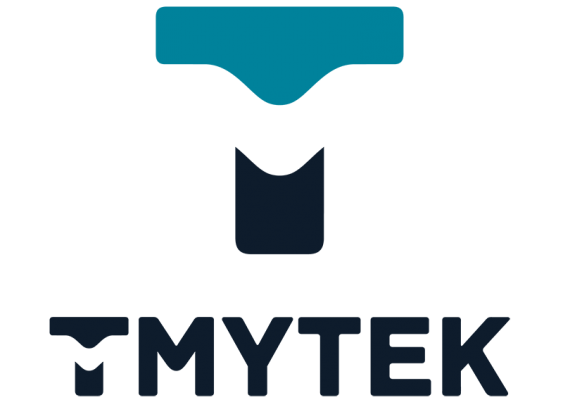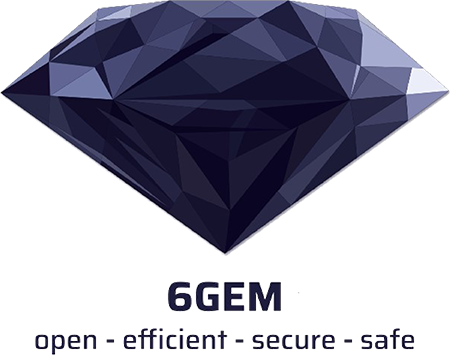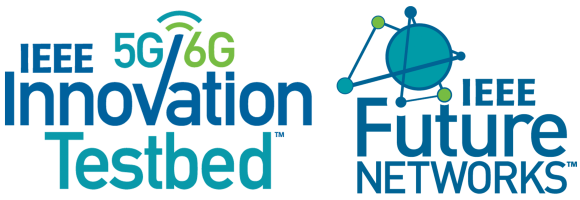Future Challenges in Quantum Communications and Networking
Monday June 9, 2025 - 2:00 PM - 3:30 PM
Room: 516 A, Level 5
Co-chairs:
Petar Popovski, Professor in Communication Engineering at Aalborg University, Denmark
Heiner Stüttgen, ComSoc’s TE & I Committee Chairman
PANELISTS:
Andrea Conti, University of Ferrara, Italy
Tasshi Dennis, National Institute of Standards and Technology, USA
Trung Duong, Memorial University, Canada
Dan Kilper, Trinity College, University of Dublin, Ireland
Azimeh Sefidcon, Nokia Bell Labs, Sweden
Panel Description:
Quantum technologies for information processing hold a significant promise to transform various applications that rely upon computation, sensing, or communications. The panel will look into the state of quantum technologies from the perspective of communication and networking and point out future challenges on the path to wider adoption of quantum communications.This entails transmission of quantum data as well as the transmission of classical data that is necessary to support the protocols and applications dealing with quantum data. The topics considered by the panel include next steps in quantum key distribution, quantum internet and entanglement distribution, networking architectures, and use cases. The panel will discuss the state of the key components, such as quantum memory, and the technical challenges related to the evolution of these components as well as the associated communication requirements. Finally, the panel will touch upon the questions of standardization and international collaboration.
Biographies:

Petar Popovski, Professor in Communication Engineering at Aalborg University, Denmark
Petar Popovski is a Professor at Aalborg University, where he heads the section on Connectivity and is a Visiting Excellence Chair at the University of Bremen. He received his Dipl.-Ing (1997) and M. Sc. (2000) degrees in communication engineering from the University of Sts. Cyril and Methodius in Skopje and the Ph.D. degree (2005) from Aalborg University. He is a Fellow of the IEEE. He received an ERC Consolidator Grant (2015), the Danish Elite Researcher award (2016), IEEE Fred W. Ellersick prize (2016), IEEE Stephen O. Rice prize (2018), Technical Achievement Award from the IEEE Technical Committee on Smart Grid Communications (2019), the Danish Telecommunication Prize (2020) and Villum Investigator Grant (2021). He was a Member at Large at the Board of Governors in IEEE Communication Society, Chair of the IEEE Communication Theory Technical Committee, as well as the General Chair for IEEE SmartGridComm 2018 and IEEE Communication Theory Workshop 2019. His research interests are in the area of wireless communication and communication theory. He authored the book ``Wireless Connectivity: An Intuitive and Fundamental Guide'', published by Wiley in 2020. He is currently the Editor-in-Chief of IEEE JOURNAL ON SELECTED AREAS IN COMMUNICATIONS.

Heiner Stüttgen, ComSoc’s TE & I Committee Chairman
Heinrich Stüttgen is an IEEE Fellow and IEEE Life Member. He received an M.Sc. from the State University of New York at Buffalo (1979) and a doctorate in Computer Science from Dortmund University in 1984. From 1985 to 1997, he worked at IBM Germany on Unix Development and Networking Research. He then founded the European Research Laboratories of NEC at Heidelberg and headed NEC's European Research Activities as Vice President of NEC Europe Ltd. until 2016. In 2020, he retired from NEC Labs.
In 2009, Heinrich received ComSoc’s “Harold Sobol Award for exemplary services to ComSoc’s meetings and Conferences.” He was a member of the Board of Governors from 2001 until 2013 and 2024-2025 and has held various leadership positions in ComSoc. From 2018 to 2022, he chaired the Activities Board of the IEEE IoT Initiative. Since January 2022, he has led IEEE ComSoc’s Committee for Technology Evolution and Initiatives (TE&I).

Andrea Conti, University of Ferrara, Italy
Andrea Conti is a Professor at the University of Ferrara and Research Affiliate at the MIT Wireless Information and Network Sciences Laboratory. His current research topics include network localization and navigation, distributed sensing, adaptive diversity communications, and quantum information science. He received the HTE Puskás Tivadar Medal, the IEEE Communications Society’s Stephen O. Rice Prize in the field of Communications Theory, and the IEEE Communications Society’s Fred W. Ellersick Prize. Dr. Conti has served as editor for IEEE journals, as well as chaired international conferences. He has been elected Chair of the IEEE Communications Society’s Radio Communications Technical Committee. He is a co-founder and elected Secretary of the IEEE Quantum Communications & Information Technology Emerging Technical Subcommittee. Professor Conti is an elected Fellow of the IEEE and of the IET, and he has been selected as an IEEE Distinguished Lecturer.

Tasshi Dennis, National Institute of Standards and Technology, USA
Dr. Tasshi Dennis has been a research scientist at NIST for over 25 years, primarily working in the field of broadband optical communications. Tasshi has made contributions to the characterization of optical fibers, reference standards for wavelength division multiplexing, metrology for complex modulation formats, electro-optic sampling of electrical signals, and linear optical sampling of coherent optical communications. Since 2018, Tasshi has led the Quantum Networking and Transduction project within the Communications Technology Laboratory to demonstrate the world’s first optical network of remotely entangled, superconducting quantum computers. Tasshi is a senior member of the Optical Society of America, has served on the editorial board of Measurement Science and Technology, and is adjunct faculty at the University of Colorado – Boulder.

Trung Duong, Memorial University, Canada
Dr. Trung Q. Duong (IEEE Fellow, IET Fellow, CAE Fellow, EIC Fellow, and AAIA Fellow) is a Canada Excellence Research Chair and Full Professor at Memorial University, Canada. He is also an adjunct professor at Queen’s University Belfast, UK,, and a visiting professor at Kyung Hee University, South Korea. His current research interests include quantum optimisation and machine learning in wireless communications. He was the only UK-based researcher awarded both the Research Fellowship and Research Chair from the Royal Academy of Engineering. In 2017, he was awarded the Newton Prize from the UK government. He is currently the Editor-in-Chief of IEEE Communications Surveys & Tutorials and an IEEE ComSoc Distinguished Lecturer. He is a fellow of the Institute of Electrical and Electronics Engineers (IEEE), the Institution of Engineering and Technology (IET), the Canadian Academy of Engineering (CAE), the Engineering Institute of Canada (EIC), and the Asia-Pacific Artificial Intelligence Association (AAIA).

Dan Kilper, Trinity College, University of Dublin, Ireland
Dr. Dan Kilper is Professor of Future Communication Networks and SFI CONNECT Centre Director at Trinity College Dublin, Ireland. He holds an adjunct faculty appointment at the Columbia University Data Science Institute and the College of Optical Sciences, University of Arizona. He received MS (1992) and PhD (1996) degrees in Physics from the University of Michigan. From 2000-2013, he was a member of technical staff at Bell Labs, and he co-founded Palo Verde Networks, a startup developing optical technologies for AI-controlled software-defined optical networks. He holds thirteen patents and has authored six book chapters and more than one hundred sixty peer-reviewed publications. His research is aimed at solving fundamental and real-world problems in communication networks, addressing interdisciplinary challenges for smart cities, sustainability, and digital equity.

Azimeh Sefidcon, Nokia Bell Labs, Sweden
Dr. Azimeh Sefidcon is head of the Network System and Security research at Nokia Bell Labs. She sets the research agenda for future networking to create a unified networking experience on two pillars of security and simplicity. Her background in computing and her interest in advanced computing has led to current research on quantum networking and post-quantum cryptography. This is to extend unified networking to embrace heterogeneous computing environments and the network system elements required for quantum networking.
Future 6G Base Station for Communications, Sensing and Positioning
Tuesday June 10, 2025 - 2:00 PM - 3:30 PM
Room: 516 A, Level 5
Panel Co-chairs:
Fawzi Behmann, Founder and President of TelNet Management Consulting Inc. and Steering Board Chairman of the IEEE Future Network Community
Zhisheng Niu, Professor of Electrical Engineering at Tsinghua University (China) and Chairman of ComSoc’s Emerging Technologies Committee
Henk Wymeersch, Professor at Chalmers University of Technology, Sweden
Panelists:
Gerhard P. Fettweis, Technische Universität Dresden, Germany
Nuria González, University of California, USA
Ibrahim Hemadeh, InterDigital Wireless Lab Europe, UK
Yuanwei Liu, Queen Mary University, England
Athina Petropulu, Rutgers University, USA
Panel Description:
The Panel on “Future 6G Base Stations for Communications, Sensing, and Positioning” at IEEE ICC 2025 will bring together leading academic experts in communication, radar sensing, positioning, and ISAC to explore the evolving role of base stations in 6G networks. As base stations transition from traditional communication nodes to integrated multi-functional platforms, this panel will discuss key challenges and opportunities, including ISAC-enabled architectures, high-precision positioning, the impact of new frequency bands, AI-driven network optimization, and standardization efforts. The discussion will provide insights into how 6G base stations will support next-generation wireless applications through seamless convergence of communication, sensing, and positioning capabilities.
Biographies:
.jpg)
Fawzi Behmann, Founder and President of TelNet Management Consulting Inc.
Fawzi Behmann is the founder and president of TelNet Management Consulting Inc. offering international professional services in technology trends and smart networking ecosystem solutions. He has held executive and leadership positions in communications and networking with Tier 1 companies in Canada and the US. He was the chief architect for development of Telecom Network Management systems for global carrier and edge/core product releases for networking company and director of strategic marketing for SoC semiconductor product lines.
Fawzi is a distinguished Lecturer and keynote speaker at national and international conferences, and has several publications, including co-authoring a book on Collaborative Internet of Things. He is a Co-founder of the "IoT in Healthcare Consortium" of Intelligent Health Association and serves as a faculty advisor with Texas State school of Engineering and member of IEEE-HKN.
As a senior member and volunteer with IEEE, Fawzi is serving as the Director of Industry Outreach Board (IOB), Chair of Future Networks Technical Community (FNTC) and IEEE Conference Committee Liaison to MGAB. Prior he was North America Director for Communications Society and BOG member and a voting member of IEEE Conference Committee, Co-Chair of Future Network Education working group, Co-Chair of IEEE Transdisciplinary Framework working group and contributor to Future Network Roadmap’s security, applications & services working groups. Fawzi chaired several conferences, summits, and panels. Among the most recent is the General Chair of IEEE WCNC 2022.
Fawzi has received multiple awards for his professional leadership, including the IEEE USA professional leadership award, IEEE Communications Society NAB Exceptional Service Award, and IEEE ComSoc Chapter of the Year and Chapter Achievement Awards, CEO Diamond chip award among others. He holds an MBA, master’s in computer science, and bachelor’s in science with Honors in Mathematics with Distinction.

Zhisheng Niu, Professor, Tsinghua University
Zhisheng Niu graduated from Beijing Jiaotong University, China, in 1985, and got his M.E. and D.E. degrees from Toyohashi University of Technology, Japan, in 1989 and 1992, respectively. During 1992–1994, he worked for Fujitsu Laboratories Ltd., Japan, and in 1994 joined with Tsinghua University, Beijing, China, where he is now a professor at the Department of Electronic Engineering. During 1997–1998, he visited Hitachi Central Research Laboratory as a HIVIPS senior researcher. His major research interests include queueing theory and traffic engineering, wireless communications and mobile Internet, vehicular communications and smart networking, and green communication and networks. He has been serving IEEE Communications Society since 2000, first as Chair of Beijing Chapter (2000–2008) and then as Director of Asia-Pacific Board (2008–2009), Director for Conference Publications (2010–2011), Chair of Emerging Technologies Committee (2014–2015), Director for Online Contents (2018–2019), and currently Chair of Emerging Technologies Committee (2022–2023). He has also served as editor of IEEE Wireless Communications (2009–2013) and associate Editor-in-Chief of IEEE/CIC joint publication China Communications (2012–2016), and Editor-in-Chief of IEEE Trans. Green Commun. & Networks (2020–2022). He received the Outstanding Young Researcher Award from Natural Science Foundation of China in 2009, Best Paper Awards from IEEE Communication Society Asia-Pacific Board in 2013 and from Journal of Communications and Information Networks (JCIN) in 2019, Distinguished Technical Achievement Recognition Award from IEEE Communications Society Green Communications and Computing Technical Committee in 2018, and Harold Sobol Award for Exemplary Service to Meetings & Conferences from IEEE Communication Society in 2019. He was selected as a distinguished lecturer of IEEE Communication Society (2012–2015) as well as IEEE Vehicular Technologies Society (2014–2018). He is a fellow of both IEEE and IEICE.

Henk Wymeersch, Chalmers University of Technology, Sweden
Henk Wymeersch is a Professor of Communication Systems in the Department of Electrical Engineering at Chalmers University of Technology, Sweden. He received the Ph.D. degree in Electrical Engineering/Applied Sciences from Ghent University, Belgium, in 2005. From 2006 to 2009, he was a Postdoctoral Associate at the Laboratory for Information and Decision Systems (LIDS), Massachusetts Institute of Technology (MIT). He has served as Associate Editor for IEEE Communications Letters, IEEE Transactions on Wireless Communications, and IEEE Transactions on Communications, and is currently a Senior Member of the IEEE Signal Processing Magazine Editorial Board. He was an IEEE Distinguished Lecturer with the Vehicular Technology Society. His research focuses on the convergence of communication and sensing in 5G and Beyond 5G systems.
Panelists:

Gerhard P. Fettweis
Gerhard P. Fettweis earned his Ph.D. from RWTH Aachen in 1990. After one year at IBM Research in San Jose, CA, he moved to TCSI Inc., in Berkeley, CA. Since 1994 he has been the Vodafone Chair Professor at TU Dresden, Germany, with 20 companies from Asia, Europe, and the United States sponsoring his research on wireless transmission and chip design. He coordinates 2 DFG centers at TU Dresden, namely cfaed and HAEC. Fettweis is an IEEE Fellow, member of the German academy acatech, and his most recent award is the Stuart Meyer Memorial Award from IEEE VTS. In Dresden he has spun-out eleven start-ups, and setup funded projects in volume of close to EUR 1/2 billion. He has helped organize IEEE conferences, most notably as TPC Chair of ICC 2009 and of TTM 2012, and as General Chair of VTC Spring 2013 and DATE 2014. At ICSI, he is focusing on research on communications systems for implementing the Tactile Internet, in particular for use in unlicensed bands.

Nuria González
Nuria González Prelcic received her Ph.D. with Honors in 2000 from the University of Vigo, Spain. She is a Professor at the ECE Department of the University of California San Diego since January 2024. She previously held faculty positions at the ECE Department of NC State University, USA (2020-2023) and at the Signal Theory and Communications Department at the University of Vigo, Spain (2000-2020). She also held visiting positions at the University of Texas at Austin and the University of New Mexico. She was also the founding director of the Atlantic Research Center for Information and Communication Technologies (atlanTTic) at the University of Vigo (2008-2017). Her main research interests include signal processing and machine learning for wireless communications, with a focus on MIMO processing for mmWave communication, joint sensing and communication, sensor-aided communication, signal processing under hardware impairments, vehicular communication, and multiantenna technology for LEO satellite communication. She has published more than 150 papers in these areas, including a highly cited tutorial on signal processing for mmWave MIMO published in the IEEE Journal of Selected Topics in Signal Processing which has received the 2020 IEEE SPS Donald G. Fink Overview Paper Award, and a paper pioneering the idea of enabling automotive radar with a WiFi waveform that won the 2022 IEEE Vehicular Technology Society Best Vehicular Electronics Paper Award. She has been an Editor for IEEE Transactions on Wireless Communications and IEEE Transactions Communications. She is a member of the IEEE Signal Processing Society TWG on Integrated Sensing and Communication, SPCOM Technical Committee and IEEE SPS Education Board.
Ibrahim Hemadeh
Dr. Ibrahim Hemadeh, Senior Staff Engineer at InterDigital's Wireless Lab Europe in the UK.
In 2017, He obtained his PhD degree from the University of Southampton (UK) and joined the Future Wireless group at the University of Southampton as a postdoctoral researcher, then joined the Institute for Communication Systems (ICS) at the University of Surrey as a Research Fellow. Since 2020, Dr. Hemadeh has been with InterDigital Europe in the UK where he has been actively contributing to wireless research and innovation activities with focus on the Physical layer design for 5G New Radio, 5G-Advanced and now 6G. He has authored more than 50 peer-reviewed journal and conference papers and holds over 40 patent applications in the field.

Yuanwei Liu
Prof. Yuanwei Liu is an Associate Professor with the School of Electronic Engineering and Computer Science, Queen Mary University of London. His research interests include next generation multiple access, integrated sensing and communications reconfigurable intelligent surface, and near-field communications. He is a Fellow of IEEE, a Fellow of AAIA, Web of Science Highly Cited Researcher since 2021 to present. He is listed as one of 35 Innovators Under 35 China in 2022 by MIT Technology Review and. He serves as an IEEE Communication Society Distinguished Lecturer, an IEEE Vehicular Technology Society Distinguished Lecturer, the academic Chair for the Next Generation Multiple Access Emerging Technology Initiative, the rapporteur of ETSI Industry Specification Group on Reconfigurable Intelligent Surfaces, and the UK representative for the URSI Commission C on Radio communication Systems and Signal Processing. He received Early Career Researcher Research and Innovation awards of Queen Mary University of London, IEEE ComSoc Outstanding Young Researcher Award for EMEA in 2020. He received the 2020 IEEE Signal Processing and Computing for Communications (SPCC) Technical Committee Early Achievement Award, IEEE Communication Theory Technical Committee (CTTC) 2021 Early Achievement Award. He received IEEE ComSoc Outstanding Nominee for Best Young Professionals Award in 2021. He is the co-recipient of The IEEE Communications Society Heinrich Hertz Award, the Best Student Paper Award in IEEE VTC2022-Fall, the Best Paper Award in ISWCS 2022, the 2022 IEEE SPCC-TC Best Paper Award and the IEEE ICCT 2023 Best Paper Award. He serves as the Co-Editor-in-Chief of IEEE ComSoc TC Newsletter, an Area Editor of IEEE Communications Letters, an Editor of IEEE Communications Surveys & Tutorials, IEEE Transactions on Wireless Communications, IEEE Transactions on Vehicular Technology, and IEEE Transactions on Network Science and Engineering. He serves as the (leading) Guest Editors for Proceedings of the IEEE/IEEE JSAC/JSTSP/Network/TGCN.

Athina Petropulu
Athina P. Petropulu is Distinguished Professor at the Electrical and Computer Engineering (ECE) Department at Rutgers, having served as chair of the department during 2010-2016. Prior to joining Rutgers she was a Professor of ECE at Drexel University (1992-2010). She held Visiting Scholar appointments at SUPELEC, Universite’ Paris Sud, Princeton University and University of Southern California. Dr. Petropulu's research interests span the area of statistical signal processing, wireless communications, signal processing in networking, physical layer security, and radar signal processing. Her research has been funded by various government industry sponsors including the National Science Foundation (NSF), the Office of Naval research, the US Army, the National Institute of Health, the Whitaker Foundation, Lockheed Martin and Raytheon.
Dr. Petropulu is Fellow of IEEE and the American Association for the Advancement of Science (AAAS), and recipient of the 1995 Presidential Faculty Fellow Award given by NSF and the White House. She is 2022-2023 President of the IEEE Signal Processing Society. She has served as Editor-in-Chief of the IEEE Transactions on Signal Processing (2009-2011) and IEEE Signal Processing Society Vice President-Conferences (2006-2008). She was Technical Program Co-Chair of the 2023 IEEE International Conference on Acoustics Speech and Signal Processing (ICASSP), General Co-Chair of the 2018 IEEE International Workshop on Signal Processing Advances in Wireless Communications (SPAWC), and General Chair of the 2005 ICASSP. She was Distinguished Lecturer for the Signal Processing Society and the IEEE Aerospace & Electronics Systems Society. She is recipient of the 2012 IEEE Signal Processing Society Meritorious Service Award, and co-recipient of the 2005 IEEE Signal Processing Magazine Best Paper Award, the 2020 IEEE Signal Processing Society Young Author Best Paper Award (B. Li), the 2021 IEEE Signal Processing Society Young Author Best Paper Award (F. Liu), the 2021 Barry Carlton Best Paper Award by IEEE Aerospace and Electronic Systems Society, and the 2023 Stephen O. Rice Prize Best Paper Award by the IEEE Communications Society.
Converged Networks and Computing
Wednesday June 11, 2025 - 2:00 PM - 3:30 PM
Room: 516 A, Level 5
Panel Co-chairs:
Ashutosh Dutta, Chief 5G Strategist and Director of Doctor of Engineering Program, Johns Hopkins University
Chonggang Wang, Principal Engineer at Inter Digital Communications, USA
PANELISTS:
Mohamed-Slim Alouini, University of Science and Technology (KAUST), Saudi Arabia
Javan Erfanian, GTI Alliance, Canada
Amitabha (Amitava) Ghosh, Nokia Standards and Strategy, USA
Gunes Karabulut-Kurt, Polytechnique Montréal, Canada
Dilip Krishnaswamy, Center for Development of Telematics (C-DOT), India
Panel Description:
Cellular networks have evolved since 1980. Today, cellular networks connect over half the world's population only. Since introduction in 1995, Wi-Fi (IEEE 802.11) networks have become very popular as they use unlicensed bands but they are not widely deployed and have low coverage. LEO satellites (e.g., Starlink, Kuiper) are being deployed to augment the existing GEO and MEO-based non-terrestrial infrastructure to provide wider coverage even and higher bandwidth. However, the end devices are not well equipped to connect to satellite networks and there are handover issues. Hence, there is a lack of ubiquitous connectivity, interoperability, and co-existence. Converged Networks play an important role in providing secured and seamless connectivity to the end users as they move around various access networks, lose connectivity to the existing network and connect to new networks. Converged networks provide desired quality of service to the first responder community and mission critical users as they make transition from one network to another network. However, there are various challenges with deployment of converged networks, namely interference management, complex network management, seamless handover, resource allocation, extended threat landscape, quality of service management, virtualization and slicing management among others. Converged networks are different than traditional networks in terms of performance metrics, topology, mobility, backhaul, down link vs. uplink data rate. IEEE 802.21 and 3GPP ATSSS have defined standards to address some of these issues. While each of the access technologies is making progress in its vertical domain, there is a need to solve the interoperability and co-existence issues before ubiquitous connectivity becomes a reality. This panel will discuss some of the opportunities and challenges associated with converged networks based on the current state of deployment and will look into some of the use cases where converged networks can be most useful.
Biographies:
Ashutosh Dutta, Chief 5G Strategist and Director of Doctor of Engineering Program, Johns Hopkins University
Ashutosh brings in a unique blend of industry and academic experience. He is currently Chief 5G Strategist at The Johns Hopkins University Applied Physics Labs and serves as associate research professor and the director of Doctor of Engineering program at Johns Hopkins University in addition to his teaching. His past career spanning more than 30 years, includes Director of Technology Security and Lead Member of Technical Staff at AT&T, CTO of cybersecurity company NIKSUN, Senior Scientist in Telcordia Research, Director of Central Research Facility at Columbia University, and Computer Engineer with TATA Motors. Ashutosh has published more than 110 papers, IEEE-Wiley book on Handoff Optimization, 6 book chapters and has 31 issued patents.
As a Technical Leader in 5G, Ashutosh has served as the founding Co-Chair for the IEEE Future Networks (https://futurenetworks.ieee.org/), IEEE Connecting The Unconnected (ctu.ieee.org) and IEEE 5G/6G Innovation Testbed (testbed.ieee.org). Ashutosh served as IEEE Communications Society’s Distinguished Lecturer for 2017-2020. He has served in IEEE Communications Society’s director of Industry Outreach Board (2014-2019) and has been serving as Member-At-Large (2020-2025). He initiated and organized more than 90 5G Summits around the world (www.5gsummit.org) and has served as founding Co-Chair of IEEE Future Networks World Forum (https://fnwf2025.ieee.org/) since 2018. Ashutosh has served as Workshop Co-Chair in ICC and Industry Forum and Exhibits Co-Chair in Globecom. His most notable awards include, 2022 North American Region Exceptional Service Award, 2009 IEEE MGA Leadership award, 2022 IEEE-USA George F. McClure Citation of Honor, and IPv6 Hall of Fame in 2024. Ashutosh is a Distinguished Alumnus of NIT Rourkela with BS in Electrical Engineering, MS in Computer Science from NJIT, and Ph.D. in Electrical Engineering from Columbia University under the supervision of Prof. Henning Schulzrinne. Ashutosh is a Fellow of IEEE, Distinguished member of ACM, Fellow of AAIA, and Member of National Academy of Artificial Intelligence.

Chonggang Wang, Principal Engineer at Inter Digital Communications, USA
Dr Chonggang Wang is currently a Principal Engineer with InterDigital Communications. He has more than twenty years of experience in the fields of wireless communications, networking, and computing, including research, development, and standardization. His current research interests include future wireless systems, blockchain and distributed ledger technologies, decentralized and pervasive intelligence, and quantum internet. He participates in industry standardization activities with ETSI, IETF/IRTF, 3GPP, oneM2M, and IEEE. He is Vice Chair of ETIS ISG on Permissioned Distributed Ledgers (PDL) and a member of NextG Alliance Research Council. He is the Founding Editor-in-Chief of the IEEE Internet of Things Journal, is the Editor-in-Chief of IEEE Network – The Magazine of Global Internetworking, and the Chair of the IEEE Internet of Things Technical Community Steering Committee. He is a Fellow of the IEEE for his contributions to internet of things enabling technologies.

Mohamed-Slim Alouini, University of Science and Technology (KAUST), Saudi Arabia
Mohamed-Slim Alouini, was born in Tunis, Tunisia. He earned his Ph.D. from the California Institute of Technology (Caltech) in 1998 before serving as a faculty member at the University of Minnesota and later at Texas A&M University at Qatar. In 2009, he became a founding faculty member at King Abdullah University of Science and Technology (KAUST), where he is currently the Al-Khawarizmi Distinguished Professor of Electrical and Computer Engineering and the holder of the UNESCO Chair on Education to Connect the Unconnected. Dr. Alouini is a Fellow of the IEEE, OPTICA, and SPIE, and his research interests encompass a wide array of research topics in wireless and satellite communications. He is currently particularly focusing on addressing the technical challenges associated with information and communication technologies (ICT) in underserved regions and is committed to bridging the digital divide by tackling issues related to the uneven distribution, access to, and utilization of ICT in rural, low-income, disaster-prone, and hard-to-reach areas.

Javan Erfanian, GTI Alliance, Canada
Javan Erfanian is a senior consultant, formerly at Bell Canada, with extensive experience within industry, research, IEEE, SDOs, and industry alliances such as GTI, NGMN, Next-G Alliance, GSMA, and ETSI, with many publications and numerous citations, and with a great deal of focus on Convergence over the years. Javan is a Senior Director of Strategy at GTI Alliance. He has been an IEEE Communications Society Distinguished Speaker for many years and a recipient of the IEEE ComSoc Millennium Medal and the NGMN Lifetime Achievement Award. He actively contributed to the development of the ITU-R IMT-2030 Framework.

Amitabha (Amitava) Ghosh, Nokia Standards and Strategy, USA
Amitabha (Amitava) Ghosh (F’15) is a Nokia Fellow and works at Nokia Standards and Strategy. He joined Motorola in 1990 after receiving his Ph.D in Electrical Engineering from Southern Methodist University, Dallas. Since joining Motorola, he has worked on multiple wireless technologies, starting from IS-95 to current 5G-Advanced. He has more than 75 issued patents, has written multiple book chapters, and has authored numerous external and internal technical papers. He is currently working on 6G technologies. He is also the chair of the NextGA National Roadmap Working Group and a member of the NGA Research Council, where he worked on various initiatives like defining 6G audacious goals, the role of vertical industries, JCAS channels models, AI/ML readiness, to name a few. He is the recipient of the 2016 IEEE Stephen O. Rice and 2017 Neal Shephard prize, Sr. editor of IEEE Access, and co-author of the books titled “Essentials of LTE and LTE-A” and “5G Enabled Industrial IoT Network”.
https://scholar.google.com/citations?hl=en&user=4qpk4dUAAAAJ

Gunes Karabulut-Kurt, Polytechnique Montréal, Canada
Gunes is the Director of the Poly-Grames Research Center, and is co-founder and Director of Education and Training of ASTROLITH, Transdisciplinary Research Unit of Space Resource and Infrastructure Engineering at Polytechnique Montréal. She is also an adjunct research professor at Carleton University, Canada. Gunes received the B.S. degree with high honors in electronics and electrical engineering from Bogazici University, Istanbul, Turkiye, in 2000 and the M.A.Sc. and the Ph.D. degrees in electrical engineering from the University of Ottawa, ON, Canada, in 2002 and 2006, respectively. She worked in different technology companies in Canada and Turkiye between 2005 and 2010. From 2010 to 2021, she was a professor at Istanbul Technical University. Gunes is a Marie Curie Fellow and has received the Turkish Academy of Sciences Outstanding Young Scientist (TÜBA-GEBIP) Award in 2019.

Dilip Krishnaswamy, Center for Development of Telematics (C-DOT), India
Dilip Krishnaswamy has led the architecture, design, and development of engineering platforms & products at Intel Corp, Qualcomm Research, IBM Research, and Jio Platforms. He received his PhD degree in Electrical Engineering from the University of Illinois at Urbana-Champaign. He is an inventor on 80+ granted patents and has authored 80+ research publications. He is presently serving as an Executive Vice-President at C-DOT (Center for Development of Telematics), Bangalore, India, where he is leading Advanced-5G Engineering and 6G Innovation efforts.




